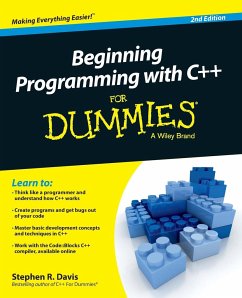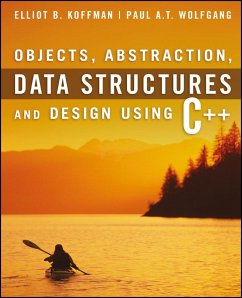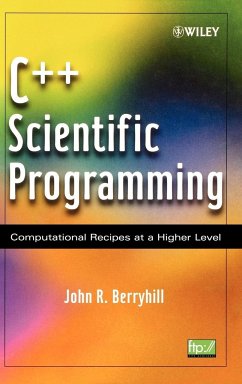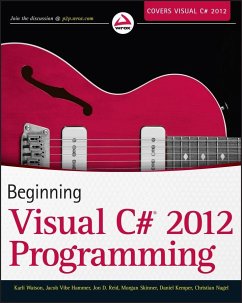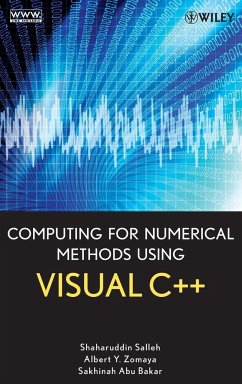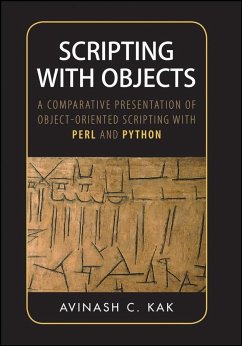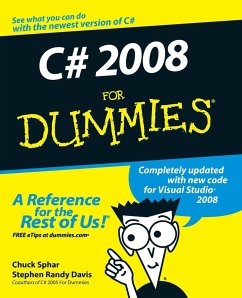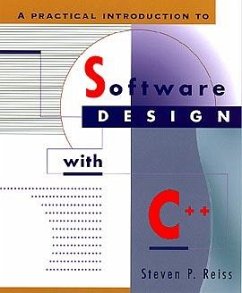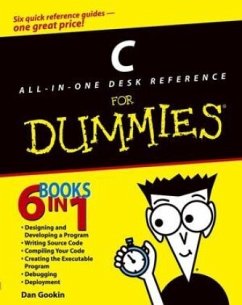Nicht lieferbar
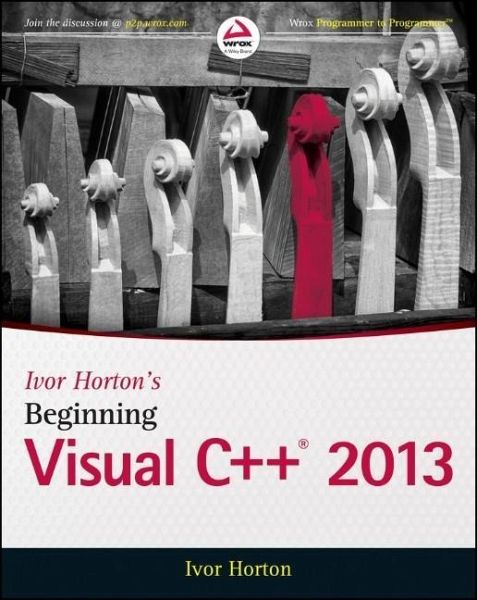
Ivor Horton's Beginning Visual C++ 2013
Learn C++ with the best tutorial on the market!Horton's unique tutorial approach and step-by-step guidance have helped over 100,000 novice programmers learn C++. In Ivor Horton's Beginning Visual C++ 2013, Horton not only guides you through the fundamentals of the standard C++ language, but also teaches you how C++ is used in the latest Visual Studio 2013 environment. Visual Studio 2013 includes major changes to the IDE and expanded options for C++ coding. Ivor Horton's Beginning Visual C++ 2013 will teach you the latest techniques to take your Visual C++ coding to an all-new level.C++ languag...
Learn C++ with the best tutorial on the market!
Horton's unique tutorial approach and step-by-step guidance have helped over 100,000 novice programmers learn C++. In Ivor Horton's Beginning Visual C++ 2013, Horton not only guides you through the fundamentals of the standard C++ language, but also teaches you how C++ is used in the latest Visual Studio 2013 environment. Visual Studio 2013 includes major changes to the IDE and expanded options for C++ coding. Ivor Horton's Beginning Visual C++ 2013 will teach you the latest techniques to take your Visual C++ coding to an all-new level.
C++ language and library changes supported under Visual Studio 2013
IDE-specific changes for code formatting and debugging
Changes to the C++ Standard Language for both C++ 11 and the new C++ 14
And more
Horton introduces you to both Standard C++ and Visual C++ so you can build any component your app requires. Ivor Horton's Beginning Visual C++ 2013 is an indispensable guidebook for any new programmer, and contains plenty of exercises and solutions to help programmers of any level master the important concepts quickly and easily.
Horton's unique tutorial approach and step-by-step guidance have helped over 100,000 novice programmers learn C++. In Ivor Horton's Beginning Visual C++ 2013, Horton not only guides you through the fundamentals of the standard C++ language, but also teaches you how C++ is used in the latest Visual Studio 2013 environment. Visual Studio 2013 includes major changes to the IDE and expanded options for C++ coding. Ivor Horton's Beginning Visual C++ 2013 will teach you the latest techniques to take your Visual C++ coding to an all-new level.
C++ language and library changes supported under Visual Studio 2013
IDE-specific changes for code formatting and debugging
Changes to the C++ Standard Language for both C++ 11 and the new C++ 14
And more
Horton introduces you to both Standard C++ and Visual C++ so you can build any component your app requires. Ivor Horton's Beginning Visual C++ 2013 is an indispensable guidebook for any new programmer, and contains plenty of exercises and solutions to help programmers of any level master the important concepts quickly and easily.





